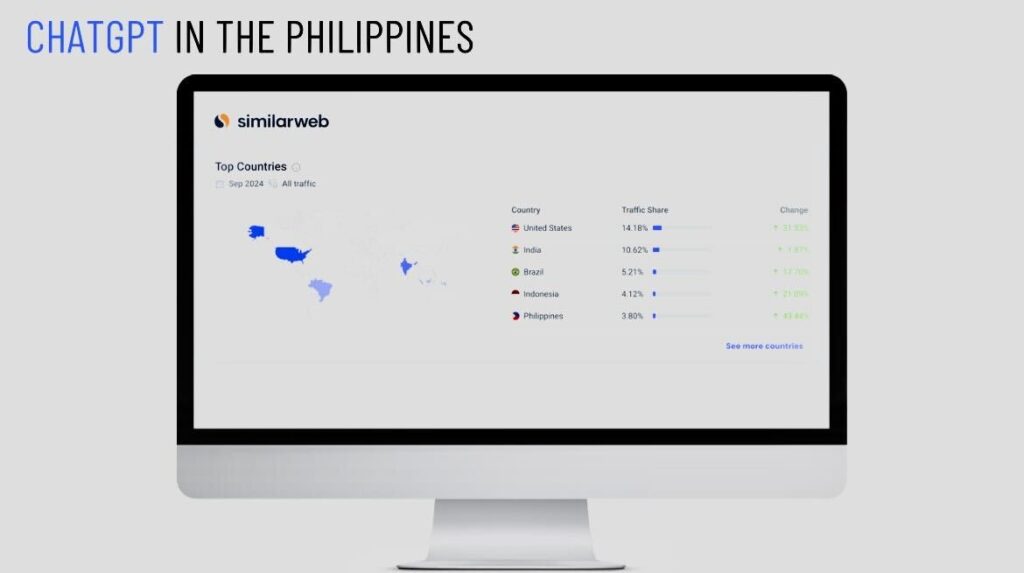
The Philippines is one of the top five countries in the world for ChatGPT usage.
CEBU CITY, Philippines — The Philippines is one of the top five countries in the world for ChatGPT usage. This shows how much Filipinos are turning to this AI tool in their daily lives.
According to a report by former news editor and Harvard Journalism Fellow Jaemark Tordecilla, the country accounted for 3.30 percent of ChatGPT’s global traffic as of September 2024, ranking just behind the United States, India, Brazil, and Indonesia.
While the U.S. leads with 14.18 percent of global usage, followed by India at 10.62 percent, Brazil at 5.21 percent, and Indonesia at 4.12 percent, the Philippines rounds out the top five.
READ MORE:
ChatGPT faces complaint for providing ‘inaccurate information’
OpenAI designs special version of ChatGPT for universities
Tordecilla shared this data during an online forum hosted by the Asia Journalism Fellowship on Tuesday, October 22.
He pointed out that ChatGPT usage in the Philippines saw a dramatic 90 percent jump when the 2024 school year started, which only translates into how AI tools are becoming an integral part of daily life for students, educators, and professionals.
“All the countries ahead of us are much larger, so on a per capita basis, we’re really big users of ChatGPT,” Tordecilla said.
“It’s already one of the top five most visited websites in the Philippines, after Google, Facebook, Lazada, and YouTube. More people visit ChatGPT than any media organization in the country,” he added.
The surge in ChatGPT usage is largely driven by the education sector, with students increasingly relying on the platform for research, homework, and other school-related tasks. As schools reopened, ChatGPT became a go-to resource for quick answers and help with assignments.
Tordecilla noted that ChatGPT usage in the Philippines peaked when school would be in session, with a noticeable dip during holidays like Undas and Christmas.
In terms of website traffic, ChatGPT is now one of the most popular sites in the Philippines. Tordecilla reported that it now ranked sixth, just behind Google, Facebook, Lazada, and YouTube, and even surpassing Messenger in web traffic.
With more than 1.5 percent of all online traffic in the country, ChatGPT has established itself as a key player in how Filipinos access information and perform tasks online.
“Imagine a whole new generation of kids growing up familiar with this technology and using it in their day-to-day work. Is it good? Is it bad? We don’t know. That’s why we, as journalists, are here to help explain these issues and figure them out,” Tordecilla said.
As more people turn to AI tools like ChatGPT, the landscape of how Filipinos consume information is changing. This shift has raised important questions for media organizations, educators, and the general public.
While AI offers fast, accessible information, there are concerns about accuracy, data privacy, and the role of traditional media in a world increasingly dominated by AI-driven content.